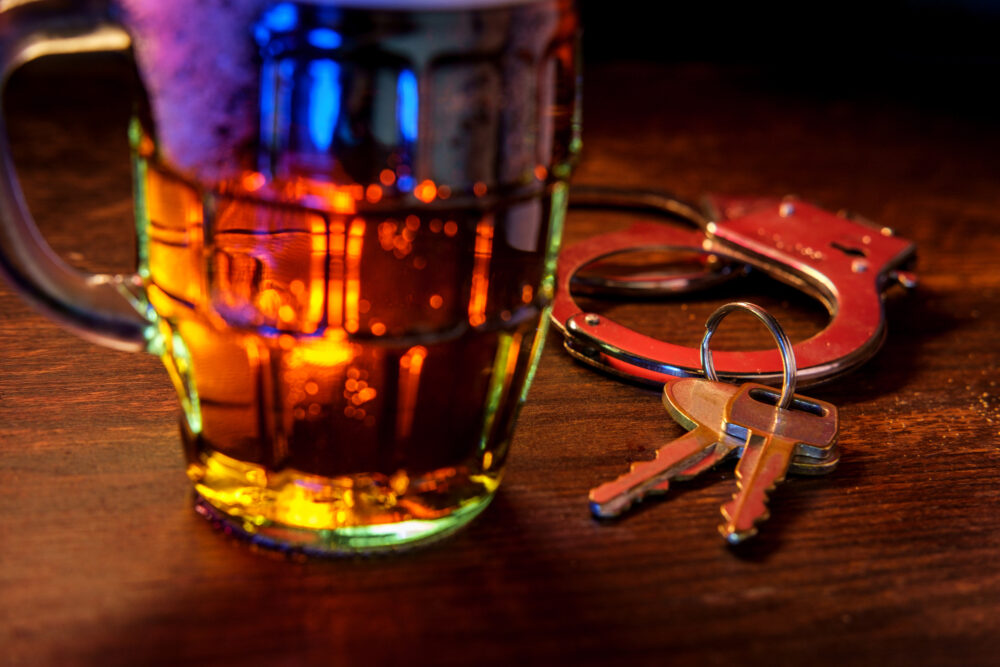Experienced DUI Defense Lawyer In
Madison, Georgia

Skilled Drunk Driving Defense Lawyer for Morgan County
Facing a DUI charge in Morgan County, Georgia can be overwhelming, with serious consequences for your driving privileges, finances, and future. If you’ve been arrested for driving under the influence, you need an experienced DUI lawyer who knows Georgia’s laws and can build a strong defense to protect your rights.
At Michael Fulcher Law, we provide aggressive and strategic DUI defense for first-time offenses, repeat DUIs, and habitual violator cases. Losing your license can disrupt your job, family, and daily life, but our legal team is here to fight for you every step of the way. With a deep understanding of Georgia’s DUI laws and court procedures, we work to reduce DUI charges, challenge evidence, and minimize penalties whenever possible.
Learn More → Georgia Blood Alcohol Content Calculator
CALL US NOW
FOR A FREE CONSULTATION
Facing legal challenges, whether it’s a DUI, criminal charge, or navigating traffic-related offenses, requires a skilled advocate. Turn to Morgan County’s Michael Fulcher Law for a blend of legal expertise and unwavering client service from a former Georgia prosecutor. Discover the optimal legal solution for your situation by calling our criminal defense law firm at (706) 438-1555 or reaching out online. Schedule your free consultation today and gain a clearer path forward.
Georgia’s First DUI Offense Act

How Georgia’s First Offender Act Works for DUI Cases
To qualify, you must:
- Plead guilty or no contest to the DUI charge.
- The judge defers a guilty conviction, placing you on probation instead.
- You must comply with all court-ordered conditions, which may include:
- Community service
- DUI Risk Reduction Program completion
- Alcohol or drug treatment
- Payment of fines and restitution
If you successfully complete probation, the judge discharges your case and dismisses the charges, preventing a DUI conviction from appearing on your criminal record.
Key Considerations and Limitations
- The First Offender Act cannot be used for all offenses—serious violent crimes and sexual offenses are ineligible.
- You can only use this defense once—a future DUI or other offense won’t qualify.
- While this law prevents a conviction, a DUI charge can still impact your driving record and insurance rates.
Penalties for First DUI in Georgia
A first-time DUI offense in Georgia carries serious penalties that can impact your freedom, finances, and driving privileges. The state imposes strict consequences, including mandatory education programs and potential jail time, to deter future offenses. If you’re facing a DUI charge, securing an experienced Georgia DUI defense lawyer can help you fight for a reduced sentence or case dismissal.
A first-time DUI is classified as a misdemeanor and carries the following penalties:
- Fines: $300 – $1,000
- Jail Time: 10 days – 12 months (the judge may suspend or confirm jail time, but a BAC of 0.08% or higher requires a minimum of 24 hours in jail)
- Community Service: A minimum of 40 hours (can be reduced to 20 hours if BAC is below 0.08%)
- Risk Reduction Program: Mandatory completion of Georgia’s DUI Risk Reduction Program (cannot be waived by the judge)
- Probation: Up to 12 months
- License Suspension: Up to 1 year (limited permits may be available)
A strong defense can significantly reduce penalties, helping you avoid jail time, lower fines, or even retain your driving privileges. Judges may dismiss or lessen certain penalties if your case is well-prepared.
Penalties for Second DUI in Georgia
If you are facing a 2nd DUI charge in Morgan County, and you have a prior DUI conviction within the last ten years, the penalties you face are compounded, and the judge has limited discretion at sentencing. In such cases, it is crucial to engage the services of an experienced Georgia DUI attorney who can assess your case’s unique circumstances and help you navigate the litigation process effectively.
A competent lawyer will ensure that your defenses are thoroughly evaluated and presented in court.
- 18-month license suspension
- The maximum penalty is up to 12 months in county jail, although usually a person is sentenced to a minimum of 72 hours in jail
- 12 months supervised probation with a fee that varies by the county at around $40/month
- $600-$1,000 fines, plus court costs and fees
- Alcohol assessment and a clinical evaluation
- DUI Risk Reduction class, usually costs $350
- 240 hours of community service
- Maintain an Ignition Interlock device on your vehicle for a period of time
- $25 fee for publishing your photo in the local newspaper where the DUI occurred
Penalties for Third DUI in Georgia
A 3rd DUI conviction imposes mandatory sentencing that involves jail time, license suspension, and public shaming. Each of these mandatory programs comes with a cost that you will have to pay. In addition, a third conviction within 5 years can mark you as a habitual offender. Because a third DUI conviction creates a horrendous record that will follow you through the rest of your life, you need a skilled DUI lawyer in Morgan County to protect you from excessive DUI penalties.
- 5-year license suspension with no limited driving privileges for work within the first 2 years
- 120 days-12 months in jail, with a mandatory 15-day jail sentence
- Fines between $1,000-$5,000
- 12-36 months of probation
- 30 days (240 hours) of community service
- License plate surrender
- DUI Risk Reduction class
- Mandatory alcohol or drug counseling and treatment programs
- Publication of photo in the local newspaper
- Declared a habitual offender if 3rd major traffic offense within the last 5 years
- A subsequent DUI could be a felony offense with prison time
How to avoid jail time for a 3rd DUI
A third DUI conviction in Georgia carries severe penalties, including mandatory jail time, license revocation, and habitual violator status. However, jail time is not inevitable—strong legal defense can help you fight the charges and potentially avoid incarceration.
Strategies to avoid jail time for a third DUI
To minimize or eliminate jail time, you must challenge the prosecution’s case. A skilled DUI defense attorney can analyze your case and use the following defense strategies:
- Disputing the Evidence – Breathalyzer and blood test results can be inaccurate due to improper administration, faulty equipment, or contamination. Field sobriety tests may also be unreliable and subjective.
- Challenging Probable Cause – If the officer lacked a valid reason to stop your vehicle, any evidence collected afterward may be inadmissible.
- Investigating Police Misconduct – Errors in arrest procedures, failure to inform you of your rights, or improper handling of evidence could weaken the prosecution’s case.
- Negotiating a Plea Deal – In some cases, an attorney may negotiate a reduced charge that carries less severe penalties.
Consequences of a third DUI conviction
A third DUI in 10 years results in the most severe misdemeanor penalties in Georgia:
- Mandatory jail time – A minimum of 15 days to 12 months in jail.
- License revocation – A 5-year revocation if it’s your third DUI within five years, resulting in habitual violator status.
- Fines & probation – Fines up to $5,000, plus court costs, community service, and substance abuse counseling.
- Permanent criminal record – A third DUI conviction remains on your record indefinitely, impacting employment, housing, and professional licenses.
Felony DUI in Georgia
While most DUI charges in Georgia are misdemeanors, certain circumstances can elevate a DUI to a felony offense, carrying severe legal and personal consequences. A felony DUI conviction can lead to significant prison time, steep fines, and long-term repercussions, including difficulty obtaining housing, employment, or credit. If you are facing felony DUI charges, seeking experienced legal representation is critical. So the next question is, when does a DUI become a felony in Georgia?
Fourth DUI Conviction
- A fourth DUI within 10 years (since July 1, 2008) is a felony in Georgia.
- Prior DUI arrests before this date do not count, but all subsequent arrests do.
- A first, second, or third DUI remains a misdemeanor, but a fourth conviction leads to harsher penalties, including substantial jail time and loss of civil rights.
Serious Injury by Vehicle (O.C.G.A. § 40-6-394)
- A DUI is a felony if it results in serious injury by vehicle to another person.
- This includes permanent disfigurement, loss of a body part, or brain damage that affects bodily function.
- Conviction carries a prison sentence of 1 to 15 years.
Homicide by Vehicle (O.C.G.A. § 40-6-393)
- A DUI that causes the death of another person is charged as vehicular homicide in the first degree, a felony.
- Penalties include 3 to 15 years in prison.
- If a DUI results in the death of an unborn child, it is considered vehicular feticide, carrying the same penalties.
Habitual Violator Status
- A driver with three or more DUI convictions (or other serious traffic offenses like racing, leaving the scene, or reckless driving) may be classified as a habitual violator.
- Driving on a revoked license as a habitual violator, especially if it leads to someone’s death, can result in First Degree Vehicular Homicide, punishable by 5 to 20 years in prison.
Georgia DUI Consequences
As an experienced DUI law firm in Georgia, we can provide you with information about the potential consequences of a DUI conviction in the state. Please note that while we aim to provide accurate and helpful information, it’s essential to consult with a qualified attorney to get personalized advice for your specific case.
Potential consequences of a DUI conviction, beyond jail & fines, in Georgia may include:
- License Suspension: A DUI conviction can lead to the suspension of your driver’s license. The length of the suspension depends on several factors, including prior DUI offenses and the specific circumstances of your case.
- Fines: Convicted individuals may face substantial fines imposed by the court. The fines vary based on the number of prior DUI offenses and other aggravating factors.
- Probation: The court may impose probation as part of the sentence. This involves regular check-ins with a probation officer and adherence to specific conditions, such as attending alcohol or substance abuse counseling.
- Incarceration: A DUI conviction can result in jail time, especially for repeat offenders or cases involving aggravating factors such as excessive blood alcohol concentration (BAC), accidents, or injuries.
- Ignition Interlock Device (IID): In certain cases, the court may require the installation of an IID in your vehicle. This device measures your BAC and prohibits the vehicle from starting if alcohol is detected.
- Alcohol or Drug Education Programs: DUI offenders may be required to complete mandatory alcohol or drug education programs aimed at addressing substance abuse issues.
- Increased Insurance Rates: A DUI conviction often leads to higher car insurance premiums or even policy cancellation. Insurance companies consider DUI convictions as indicators of high-risk behavior.
- Criminal Record: A DUI conviction results in a criminal record, which can have long-lasting consequences, affecting employment prospects, professional licenses, and future background checks.
- Professional Consequences: Certain professions, such as those requiring a commercial driver’s license or positions of public trust, may be impacted by a DUI conviction, potentially leading to job loss or limitations in career advancement.
- Impact on Immigration Status: Non-U.S. citizens charged with a DUI in Georgia may face additional consequences related to their immigration status, such as visa restrictions, deportation, or difficulties in obtaining citizenship.
Why You Need a Skilled Georgia DUI Defense Lawyer
A felony DUI conviction can alter your life permanently, leading to lengthy prison sentences, loss of driving privileges, and a criminal record that follows you for years. If you’ve been charged with felony DUI in Georgia, contact Michael Fulcher Law at (706) 438-1555 for aggressive legal defense and guidance.
DUI Frequently Asked Questions
AMAZING WORK
“Mr. Fulcher has been tremendously helpful with my case. Since hiring him he has consistently returned my calls as quickly as he can. We discussed an ideal outcome, and I set about doing exactly as he said. Following his advice we were able to get a very favorable outcome. He is always quick to answer any questions, and has stayed very engaged with me throughout this ordeal. Michael provides excellent counsel, and I would recommend him to anyone!”
— TOM




